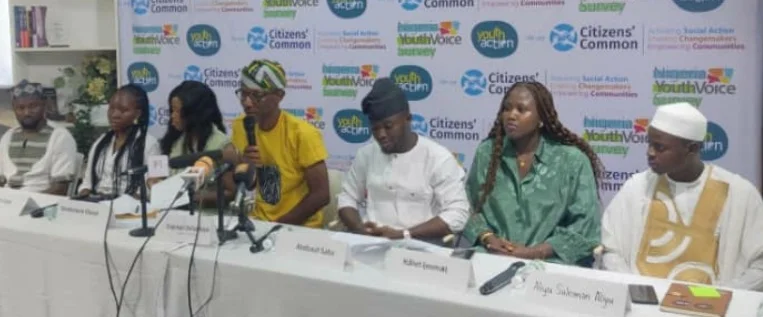“The survey is an extension of our youth conversation for the ‘New Nigeria’, designed to engage Nigerian youths, create awareness, and highlight policy issues of importance from communities to campuses.
“The key objective of the survey is to consult young Nigerians and gather their ideas and thoughts on the ‘New Nigeria’ and their future in it.
“It is to also help identify key issues of importance of young Nigerians that the leaders should focus on,” he said .
The executive director said that the group was seeking ways to deepen the nation’s democracy, expand political participation, inclusion, and active citizenship among the people so as bridge the gap between the government and the governed.
He further explained that the survey was part of the commitment and extended engagement to create evidence-based policy, by providing policy makers and leaders with the tools required to make more informed decisions.
According to him, the data generated by the survey will be used to engage leaders at local, national and state levels to see what the youth desire and what priorities are important to them as well as the pains and challenges.
“We are targeting 25,000 responses across geo-political zones, and we will be reaching out to youths where they are.
“Our mobilisation efforts will reach out to young people from campuses to communities, villages and cities and ensure that it represents the participation of the Nigerian youth population.
“The future of Nigeria is in the hands of young people and we must be intentional about the policy, politics as well as principles, and practices that shape our national development and government priorities.
“The survey will offer a new way to amplify our voice and share with our peers what we think our leaders should be doing to birth the New Nigeria we desire and our role in it,” he said.
Oshunkoya noted that Nigerian youths were majorly facing challenges of mass unemployment and limited economic
opportunities.
He added that the survey is about young Nigerians taking charge of their future by informing their leaders of their own priorities.
“Just last week we celebrated the 26th anniversary of our current democratic dispensation; a great
opportunity to reflect on our collective responsibility as Nigerians.
“Nigeria today is far from the dreams of our founding fathers, and we must all contribute to the effort to refresh and redirect the fortunes of this country toward a more inclusive sociopolitical aspirations of our founding fathers.
“We must build a Nigeria that works for the many and not the few,” he stressed.



